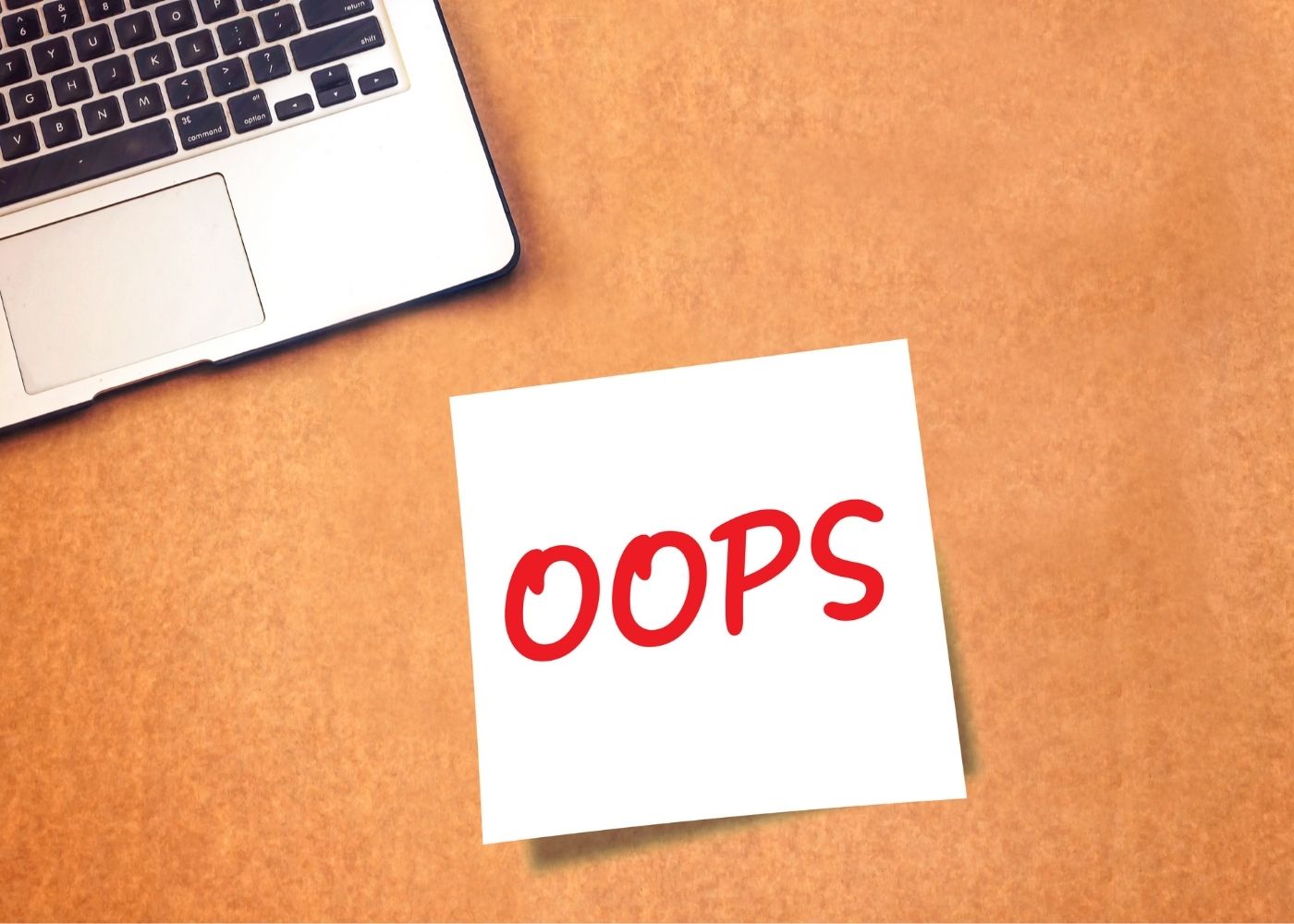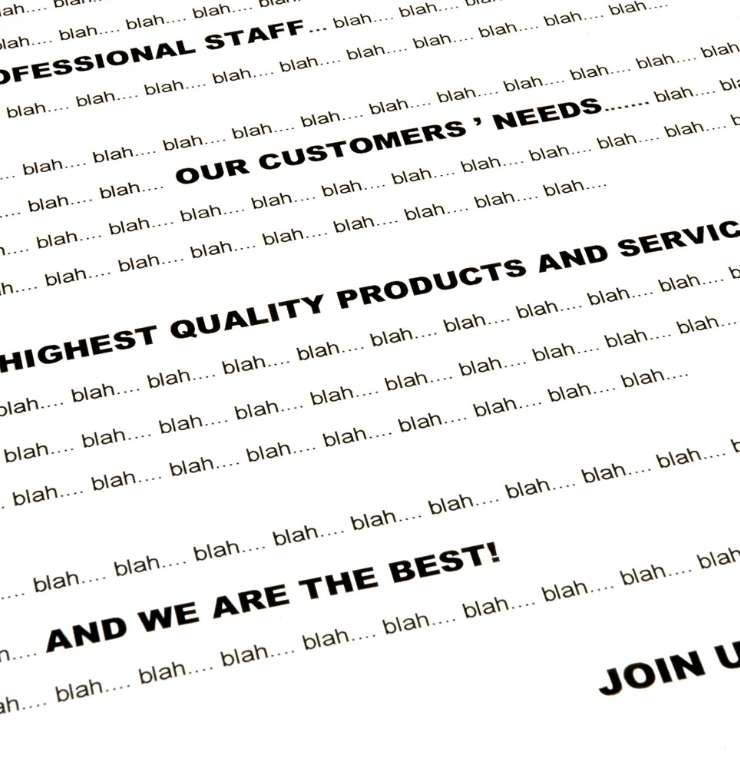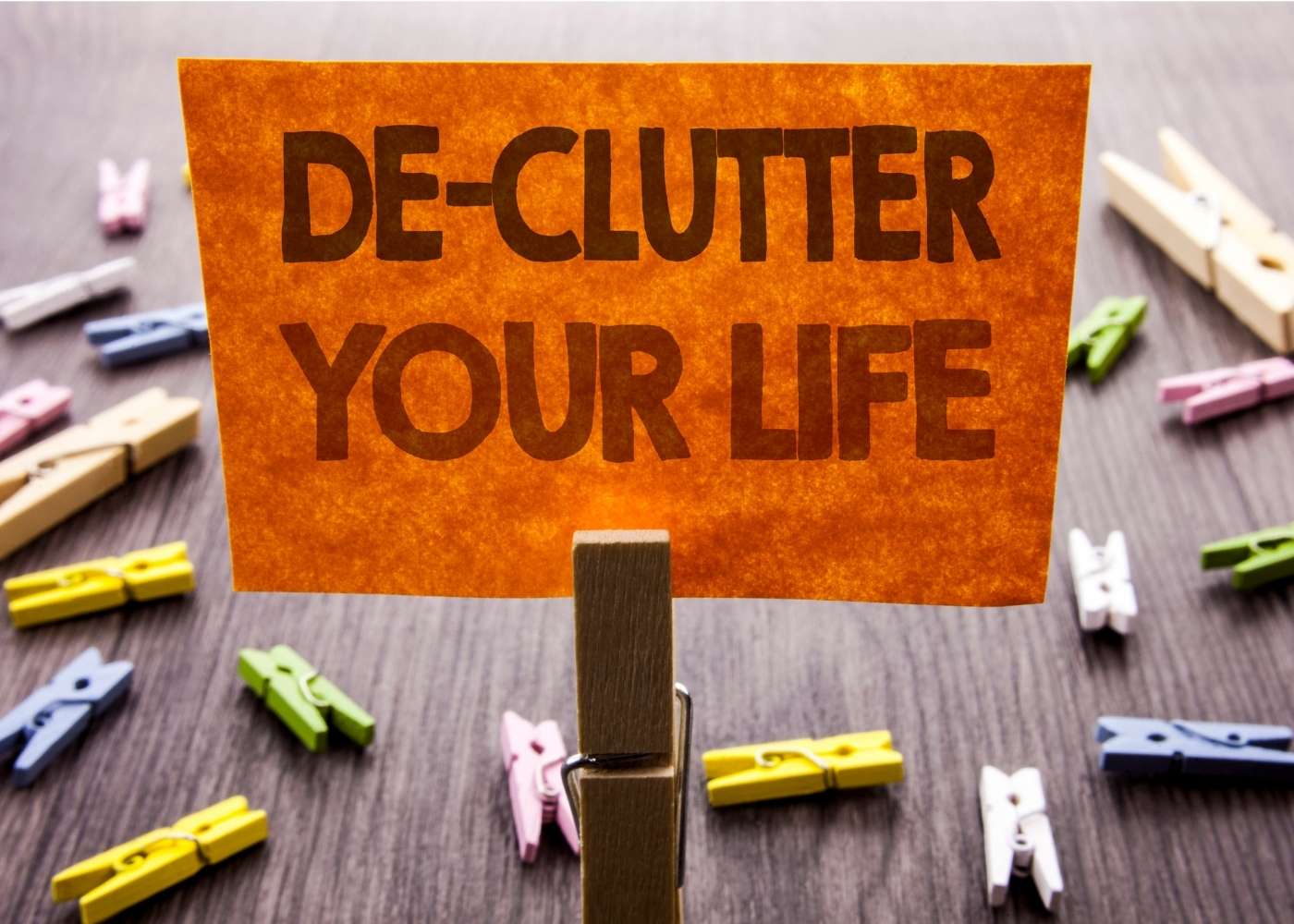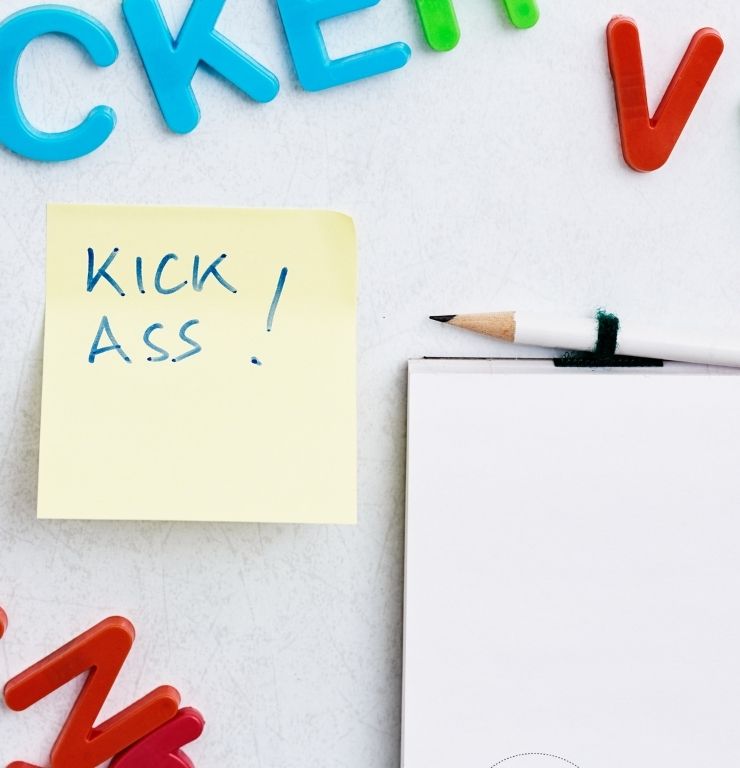
Simplify, Simplify
T
he other day I wanted to hear my friend guesting on a podcast, but the host was such a gas-bag that I had to stop without getting to hear her. He seemed to think he was the Charles Dickens of podcasts, getting paid by the word.
After five long and boring minutes of him talking about himself, and no way to skip ahead in the recording, I gave up. This is what I call “audience abuse” and it should be illegal.
One of the cardinal rules when speaking, whether in person, on camera or other platform, is to get to the point as soon as possible. It will make life much more pleasant for all concerned.
This is definitely something I’ve noticed a lot more since we’ve all been forced onto Zoom in this past year. Some people seem to think that because we have nowhere to go that we must also have all day. Not so! Preamble that rambles is not the way to build momentum, and waiting through several minutes of filler to hopefully get to the meat of the matter is tiring and vexing.
If you’re fortunate enough to have an audience, take care of them. Be forthright, succinct and show them you respect their time.

Enough With the Phony Familiarity
T
rends in business communication shift with the times, as they should.
During my early days as a public speaking coach, the fad (never a good one) was to “Tell them what you’re going to tell them, tell them, and then tell them what you told them!” Pure bunk and fortunately no longer in vogue.
Being under lock down has had its own influence on how we talk shop, some good and some extremely vexing. I’ve been able to coach online classes on how to Upgrade Presenting Skills for Zoom, and the results are deeply gratifying- formerly shy, introverted senior level people have absolutely bloomed. Confidence is shored up. Meetings become engaging once people understand how to speak on/camera.
Now I’m seeing an annoying trend and to anyone out there who thinks it’s clever, think again. It’s e-mail abuse, in the form of familiarity:
“Hi Katie, I hope you’re doing alright and are in a good place…are you? You’ve probably noticed from my emails lately that…” These are from people I’ve either never heard from, or else haven’t heard from in a dozen years or more. So no, I haven’t noticed anything lately and this approach guarantees that I never will again.
Please don’t make that mistake out of sheer desperation. Or another type- my husband got a jocular work email, much the same fake friendly but with the added touch of the sender in a highly inappropriate outfit and pose.

How To Screw Up Your Presentation
H
ow to screw up your presentation:
- Procrastinate. Wait until the last possible minute to think about your message, your intention and your knowledge.
- Once you’re good and nervous because you’ve waited so long, sit down in front of the computer to write your speech.
- Start typing whatever comes to mind. Spill it all out onto the page.
- Print it out in a size 10 or 12 font.
- Don’t rehearse. Don’t get to know it, or to own it. Just read through it to yourself.
- Drink lots of coffee on the day you present.
- Grab whatever clothes you want and same with shoes.
- Manage your stage fright by imagining your audience in their underwear.
- Start by telling everyone how nervous you are.
- Speak as quickly as possible, to get it over with.
And that’s all it takes! Follow one or all of these and you’ll be giving it less than your best, and putting yourself through hell, and abusing the audience as well. Or, you can do the opposite and give yourself a fighting chance. More on that, anon.

When “You have strong opinions” is Really Code for Something Else.
H
mmm. I’m wondering if other people have noticed the same thing. There are times when I’ve been told exactly those words (above) and in a tone meant to mildly shame or judge. As if having a less dynamic point of view would be preferable to the listener, as well as better suited to my gender, because the majority of people I’ve heard this from are men.
This begs the question: do men go around telling other men that they are very opinionated, and to tone it down? As my husband would say “homey don’t think so.”
So this week my calendar included coaching a senior executive with the ACLU, to prep for an upcoming presentation, and the stakes are huge. My strong opinions came in very handy, I can tell you that for sure. So I want to reassure all of us who might have been scolded for having a strong opinion- if it’s weak convictions you’re after, please seek them elsewhere…there are plenty of them out there. I’m proud to say I’m opinionated.

My Grandmother Was Right-“You’ll catch more flies with honey than with vinegar!”
oh, the number of favors I’ve been given, gifts I’ve received, and compliments I’ve heard for one simple reason: I’m polite on the phone, online, and in person. Why am I like this? Good upbringing certainly helps. I was taught to be courteous even if my opinion differs from someone else; to praise people when they’re doing their job well, and to always use “please” and “thank you.”
My dear friend is just the opposite. Whenever we’re together, she approaches any public interaction as one more potential problem. She brings that energy to whatever the situation may be (ordering food, asking for information, returning something) and more often than not, her tone is picked up on right away, and she puts people on the defensive. I’ve tried to tell her that she’s sending this message, but she can’t seem to help herself because I don’t think she can see and identify it.


Meanwhile, people have sent me:
– a new paper shredder (after my old one conked out)
– 3 different $25 gift certificates, 2 to Whole Foods, 1 to Target, just for telling the store manager how well they were running things (they always expect a complaint, which is sad)
– a total refund from a popular shopping site that rarely issues them (for $220.)
The salient point is that I never did anything in order to ‘be gifted’ I was just being myself, which includes being polite. i.e. “Why has my shredder stopped working, do you think? I’ve done all of the trouble shooting, but nothing’s helping.” Or: “I know your policy on refunds, but may I tell you XYZ., and “May I see the manager? I’d like to compliment them on the excellent service here.”
Far too often, people are quick to complain. It didn’t used to be this way, but it is now. Try the opposite approach when you next get a chance. Compliment, acknowledge, and praise. Everyone needs encouragement, now more than ever.

For the Ladies: Stop Apologizing, Please
The other day, I decided to count the number of times I heard women apologizing in public, because I was hearing a pattern in the way women, in general, communicate. (disclaimer: here in NYC, though I suspect it’s ubiquitous)
Clearly, I already suspected that the count would be high, but I was stunned as the number rose so quickly.

The short bus ride into the city racked up eight “I’m sorry’s” in under five minutes.
“I’m sorry, is this the last stop?” “Sorry to bother you, can I sit here?” and then just plain “sorry” for handing the driver a $20. (By the way, it’s their job to make change.) The best was when the bus lurched, and I accidentally stepped on the woman behind me, and she apologized to me.
My next stop was a meeting of an all-female entrepreneurs group. Oh, the apologies were whistling around the conference room…prefacing questions with “I’m sorry” or coming in late and apologizing, getting up to leave and apologizing.
This has got to stop. Women do it far more often than men, and I just can’t see the point of it. It’s a reflex, said without literally meaning in, but conveying apology and regret just the same. For what? What are we really saying here? It might be construed as apologizing for merely existing, and is that really the message we want to send out to the world?
I think not. Save the words for when you truly mean them, and not as a disclaimer for opening your mouth in public. Our words have consequences, with the power to shape the future, so stop apologizing and start thinking about what you really want to say. It will change who you are, and strengthen your self-confidence.

Clutter in the Convo.
Spring lends itself perfectly to sloughing off layers of life that we no longer need. Blankets, hats, excess pounds, and unused “stuff” —it’s safe to shed what you won’t be needing.
This includes your style of speaking!
How you come across in front of others makes all the difference in where you might want to go with your career. If you want to go far and wide, you’ll need to be ready to speak up spontaneously. Shakespeare was right- “all the world’s a stage.” Let’s make sure we’re ready to go on:

1) Are you padding your sentences with extra words and industry phrases when you talk to colleagues?
On a recent bus ride through the Lincoln Tunnel, I was reluctantly privy to one side of a typical work conversation. My young woman was liberally using industry-speak on her phone call. Those are the filler words, buzz-words, phrases, and things that everyone else says but no one gives much thought to.
I’d say it took up about 2/3 of her sentences, leaving her caller (and myself) with the remaining 1/3 to try to glean her meaning. Because she was asking a lot of questions, this back and forth went on for way too long. If she had just cut out the flabby words and phrases she was larding her sentences with, she could have finished her call in 1/3 the time and I could get back to my book!
This is an easy but deadly trap to fall into, because all of those industry words can add up. If you’re not getting mileage out your speaking, but are saying the same words that everyone else does, I encourage you to find a different approach. Words without significant meaning to the speaker are verbal clutter. They will eat into your listeners attention spans, without advancing your ideas.
2) Make sure you can be heard. Audio crispness- in phones, cameras, etc. has been in steady decline for years, and clear sound is never a given.

The Profound Effect of Clutter on Communication.
“As within, so without.”
Socrates
I once worked with a financial analyst who was bright, charming and surrounded by clutter in his office. It was a beautiful space, with views of Rockefeller Center, but all you could notice was the stuff. It was distracting…photos everywhere, piles of files, books, athletic gear, and a big ball made up of rubber bands that had made the last three moves with him. That’s what most of his clutter was…stuff that he hauled around but never gave much thought to.

We would get together in one of his firm’s meeting rooms, and then go back to his office to set a date for the next rehearsal. The difference in the two rooms was always so striking, that one day I asked him if he was open to cleaning up and clearing the clutter. He blushed a bit (he was known at his firm for his muddle) but immediately said yes.
It didn’t take too long, and it really paid off. We got rid of a lot of stuff, organized what remained, and tossed out the rubber band ball. We re-positioned photos of his wife to places where he would notice them. Colleagues started stopping by, as word got out. Their amazed faces when they walked in told me we’d gotten it right. It was a transformed work space, and now he’d be much better supported for the demanding work he did.
If you are in such a position, one of the best things you can do for yourself is to look at your space with “fresh eyes.” Walk in and notice everything. How does it make you feel to be in your workspace? Are you able to think and focus?
If not, do not think poorly of yourself, which does no good. Just gently start going through your objects, one by one. If you don’t love it, or find it useful, then it’s clutter and it’s having a major, negative effect on you. It’s an energy drain. Get rid of it, and welcome in the energy that the clutter has been blocking!

John’s Salt: Why Men Will Cheerfully Take Credit For Just About Everything.
Whenever I’m working with women on the subject of owning their skills and contributions in business, they tend to go a little soft and wispy. It doesn’t seem lady-like to speak openly and confidently about yourself.
And therein lies the rub: men do it all the time. Even if they’ve played a small part in a successful project, many are not shy about claiming ownership. It seems to be how we’re wired but I think a little tweaking is needed.

When I recently decided to learn how to make salt, I did some research on the internet. I picked a beach in Truro, on Cape Cod and asked my husband to help with the project. He carried the water jug.
After we collected it, I decided that little salt sachets would be a fine gift for my foodie friends and so I needed a name for my salt. I tried out “Corn Hill Salt,” “Cape Cod Salt,” “Bay Water Salt,” “Truro Salt.” And then my fetching husband came up with “John’s Salt.”
I looked at him and he was quite sincere…no ironic smile or anything, just sayin’ … “John’s Salt.” He just carried the jug. I found this hilarious.
So ladies, I want you to think about this. Everything is relative. If you have a hand in a project, own it. Especially if it goes well and you helped with that. Otherwise, we aren’t worth our salt!

Can We Stop With the #@! kick-a–Nonsense?
There’s a trend in coaching and other types of entrepreneurial endeavors to title workshops, seminars, classes etc. using mild profanity. I suspect this is meant to convey a saucy dis-regard for convention. Instead of calling my workshop “Signature Talks to Grow Your Business” why not flash my sass and call it “Kick-Ass Keynotes to Bring Them to Their @#$ Knees?”

I’ll tell you why not-first, it sounds juvenile- as if I’m 13 years old and trying out the naughty words to see what kind of effect it has on the grown ups. It’s playing at mild shock value. As my close friends can attest, I love to swear on occasion, using curses far more blue than “kick-ass.” It’s fun to mix it up. But it’s organic and appropriate to the moment, not contrived to be clever in business.
Second, anytime I spot a trend in communicating that everyone is employing, that’s reason enough for me not to do it. Our speech should express our genuine thinking, not copy the vanilla choices that everyone is making.
Which is why the naughty girl talk looks all the sillier-it’s not even original. That’s the real problem right there. If you’re a coach, or business owner, you’d better be able to think and speak for yourself. Until you can, give careful thought to the bandwagon you’re climbing on. It might not be headed where you want to go.
